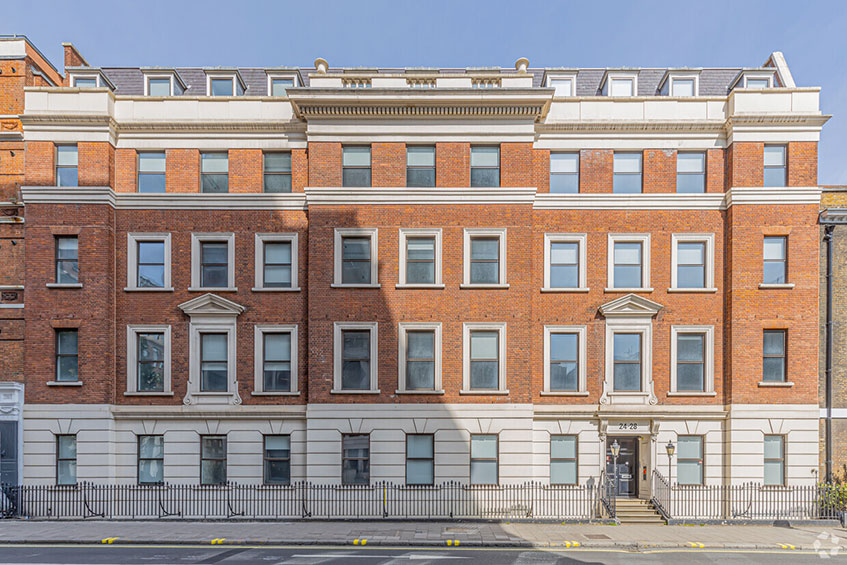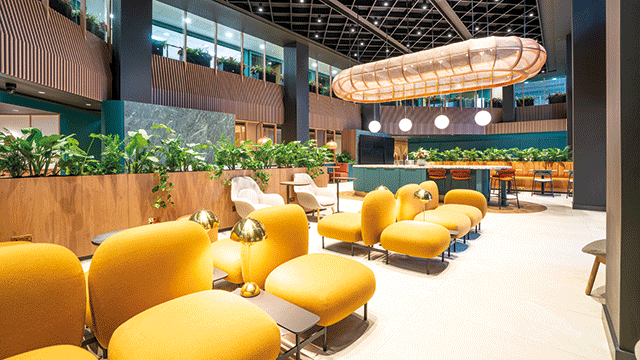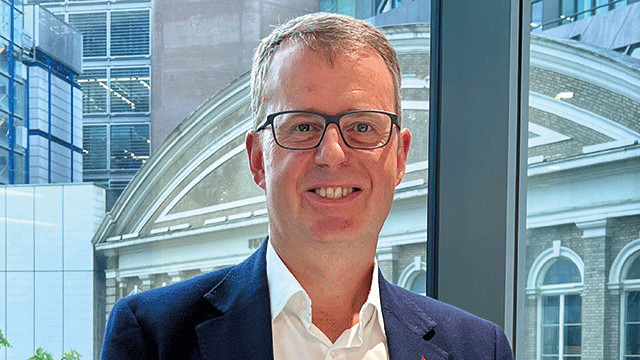Given the melange of macroeconomic headwinds that occupiers and landlords face, some might consider expansion a Sisyphean task.
But not Alan Pepper, chief executive of serviced office provider Orega.
The company’s management agreement model requires it to pitch its services not only to occupiers, but also to the landlords it partners with.
“This one landlord over here will have slightly different priorities than another landlord and [the management agreement model] doesn’t necessarily fit with everyone… it takes quite a long time to get new buildings because we’ve got to educate the landlord as well,” Pepper told Estates Gazette.
With management agreements an unknown quantity for many landlords, Pepper said the process can be challenging. But this is changing and Orega is gathering momentum.
“We’ll do four to six buildings per year for the next five years,” he said. “That would take us from 26 buildings to 50 buildings.”
This doubling, he said, could push the company’s annual turnover as high as £100m – no small feat for a company which reported a turnover of just over £15m last year.
Burgeoning growth
The wider flex market has been growing too. Just this week, IWG, the world’s biggest flex provider and the company behind brands such as Regus and Spaces, said revenue growth stood at 2% year-on-year over the first quarter, reaching almost $1.1bn (£820m). The company cheered a record sales month in March and 224 new openings across its global portfolio, whereas in the same period the year before it opened 212.
Last year the UK flex market saw take-up hit 1.06m sq ft – the highest since the Covid-19 pandemic and 12% above the total for 2023, according to research by Savills and its flex office specialist Workthere.
Savills also found the market has become increasingly diversified, with new entrants and expansions in the market coming from both global and domestic operators.
Earlier this year, Singapore-based operator The Work Project made its first foray into the European market with a 30,000 sq ft lease across Brookfield Properties’ One Leadenhall in the City of London. Last year, UK-based operator x+why announced it would open a near-34,000 sq ft hub in Martley Capital Group’s Bridgewater Place in Leeds and 27,500 sq ft in W RE’s Arding & Hobbs at 315 Lavender Hill in Clapham Junction.
Leases of scale are in vogue as well, with three transactions above 50,000 sq ft in the first three quarters of last year – most notably, Techspace leased 80,000 sq ft at General Projects’ 140 Goswell Road, EC1, according to Savills and Workthere. This year, the market has seen yet another deal of that scale already, with flex operator Huckletree announcing it will be opening a 50,000 sq ft flex hub in M&G’s 40 Leadenhall, EC3.
The Orega approach
In the midst all of that excitement, Orega has still been on a tear. The company accounted for the highest quantum of take-up in the first three months of last year out of any company, according to Savills.
It started the year with a bang, announcing its 36,000 sq ft flex space at 51 Lime Street, which it runs under a management agreement with insurance firm WTW, had been fully let.
“We’ve had a great run in that site,” Pepper said. “We opened in April last year and then contracted full just before Christmas… it’s a good result for us and our landlord partner, so they’re very happy.”
Speaking to Estates Gazette at the company’s office at 80 Strand, WC2, Pepper was at ease sharing his insights into the company’s recipe for success. During the interview, work life was in full flow, with occupiers and operational staff bustling about the art-deco office.
“We’re focused on ‘corporate occupiers’, if you like,” Pepper said. “And because we’re working with landlords, part of what we do is we provide landlords with comfort about how they deliver.
“Occupiers are taking flex space, but they remain actually reasonably well occupied through the week… it’s people taking it and wanting to use it. And, again, that comes back to the fact it’s a great building, great location with great amenities and people want to come and use it.”
Due to its affinity towards occupiers of a certain type, Orega looks to provide a certain type of office to suit their needs.
While appearing sleek and refined, the space at 80 Strand also offers more separation and privacy than could be found in a flex space more geared towards providing the most agile and flexible working spaces.
“Our style is not to have lots of glass everywhere,” Pepper said. “The glass is typically on the corridor front and then you’ve got a bit of privacy manifestation and that’s about getting natural light into the rooms.
“So, actually, it is a private operation for people. I think that’s why our client base is typically in that bigger category, because we provide everybody with the privacy they need, but they get all the flexibility.”
And once tenants are in, they tend to stay, Pepper added. “Typically people sign up for a 12-month contract… but we would renew about 70% of those, which is quite high,” he said.
“It comes back to the average client size. It is quite high and once you find somewhere that your team are happy to work in and works for your location, there often needs to be a prime driver to move… so if you’ve got 25-30 people in one of our buildings in the City, why move?”
Early last year, the company announced it had signed a 10-year management agreement with educational company Pearson for 35,000 sq ft in the building.
Cybersecurity platform Darktrace also uses the building. “They use us for meeting rooms at the moment, but we’re having conversations,” Pepper said, hinting at a deal which could be another coup for the company.
Darktrace, founded by Baroness Poppy Gustafsson, now the minister of state for investment, appears to match Orega’s occupier profile to a T; a corporate occupier larger than the traditional flex customer, nonetheless demanding flexibility to account for growth but also the privacy necessary for the business.
“[We have] the ability to deliver for those big clients and deliver a bespoke solution at the very top end… and we’ve got more at the smaller end where people want to build offices in their rooms and to deliver 20 workstations with an office in it,” Pepper added. “That’s encouraging for people. They can see they can get maybe not everything they want, because they don’t have their own front door with a brass plate on it, but they can get everything they need.”
Weathering the storm
Whether companies such as Orega can maintain momentum is another question. No doubt the spectre of turmoil unleashed by US president Donald Trump’s tariff war has put a damper on the more positive outlook some in commercial real estate had felt at the beginning of the year.
Yet Pepper expressed confidence in his recent reflection on the company’s start to the year.
“While we have all started to grapple with the increasing economic and political volatility that has emerged over the last quarter, the flex workspace sector has continued to show resilience and growth,” he said.
Within that, Pepper hopes Orega stands out and will continue to do so.
“Somebody said [of Orega] ‘casually corporate’. I think that fits us quite well,” said Pepper. “We’re not a Mayfair sort of fancy, but it’s great quality service – everybody can sit here, whether they’re in a suit and tie or jeans and a T-shirt.”
That casually corporate identity, alongside the quality of the company’s buildings and the amenities around them, is what Pepper believes makes the company’s pitches work – and justifies its ambition.
Send feedback to Dominic Plaskota
Follow Estates Gazette











